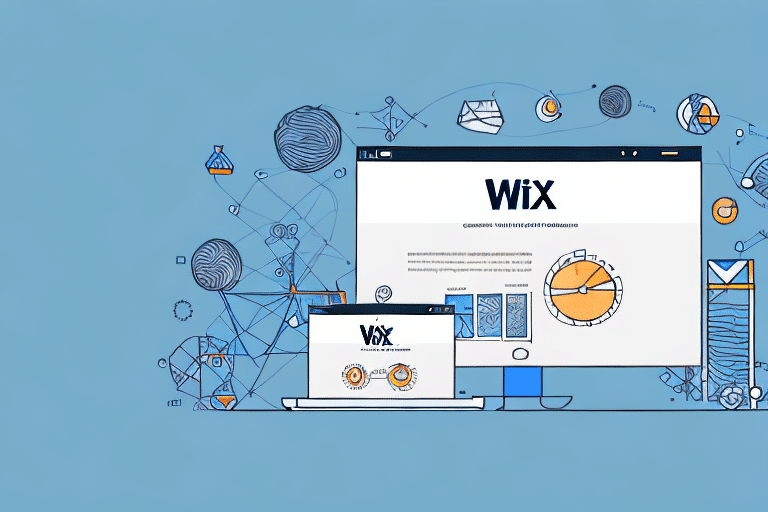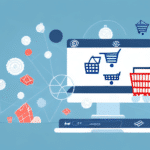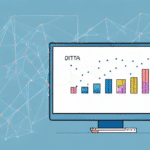How to Connect, Optimize, and Manage LSOs for Wix eCommerce
In today's digital age, online businesses are booming. To compete and stay ahead, eCommerce website owners need a comprehensive understanding of web analytics. Local Shared Objects (LSOs) are one such technology that plays a major role in tracking website visitors and their behavior. In this comprehensive guide, we'll explore everything you need to know about LSOs, including why they're essential for Wix eCommerce websites, how they work, and which specific types are best suited for your business. We'll also cover how to enable, optimize, and manage your LSO settings effectively on Wix, as well as tips for integrating LSOs with other marketing tools and measuring their success.
Understanding Local Shared Objects (LSOs) for Wix eCommerce
What Are Local Shared Objects?
Local Shared Objects, commonly known as LSOs or Flash cookies, are data files stored on a user's device by websites to track user behavior, preferences, and settings over time. Unlike traditional HTTP cookies, LSOs can store larger amounts of data and are more persistent, making them a powerful tool for tracking repeat visits and user interactions across multiple sessions.
Evolution of LSOs and Modern Alternatives
With the deprecation of Adobe Flash in 2020, the use of traditional LSOs has declined. Modern web technologies like localStorage and sessionStorage have become the standard for client-side storage, offering similar functionalities with better compatibility and security. Understanding these alternatives is crucial for implementing effective tracking mechanisms on Wix eCommerce sites.
Importance of LSOs in eCommerce Tracking
LSOs allow eCommerce websites to gather detailed insights into user behavior, such as browsing patterns, product preferences, and purchase history. This data is invaluable for personalizing user experiences, optimizing product offerings, and enhancing marketing strategies. According to a report by Statista, global eCommerce sales are projected to reach $6.54 trillion by 2023, underscoring the importance of leveraging analytics tools like LSOs to stay competitive.
Implementing LSOs on Your Wix eCommerce Website
Enabling LSOs on Wix
To enable LSOs on your Wix website, follow these steps:
- Log in to your Wix account and navigate to your site's dashboard.
- Select Settings from the menu.
- Go to the Privacy & Security tab.
- Enable the appropriate storage settings, selecting the type of LSO you wish to use.
- Configure additional settings, such as user consent requirements, to comply with privacy regulations.
Integrating LSOs with Marketing Tools
Integrating LSOs with marketing tools can amplify your data analytics capabilities. For instance, integrating with Google Analytics allows you to track user interactions more comprehensively. Additionally, connecting LSOs with email marketing platforms like Mailchimp can help in creating targeted campaigns based on user behavior data.
Optimizing and Managing LSOs for Enhanced Performance
Best Practices for LSO Optimization
- Set Appropriate Data Retention Periods: Define how long you want to store user data to balance between valuable insights and privacy concerns.
- Ensure GDPR Compliance: Make sure your LSO implementation complies with the General Data Protection Regulation (GDPR) by obtaining explicit user consent and providing clear privacy notices.
- Transparent Data Collection: Clearly inform users about the data being collected and its intended use to build trust and enhance user experience.
Monitoring and Managing LSOs
Effective management involves regular monitoring and analysis of the data collected through LSOs. Utilize tools like Google Analytics to evaluate the impact of LSOs on key performance indicators (KPIs) such as conversion rates and average order value. Additionally, periodically review and update your privacy policies to reflect any changes in data usage practices or regulations.
Troubleshooting and Comparing LSOs with Other Technologies
Common Issues with LSOs
Some common issues with LSOs include:
- Data Loss: LSOs may fail to store data correctly due to browser restrictions or user interventions.
- Incorrect Tracking: Misconfigurations can lead to inaccurate data collection, affecting analytics accuracy.
- Security Vulnerabilities: LSOs can be susceptible to hacking and unauthorized access if not properly secured.
To address these issues, ensure that your LSO settings are correctly configured, use secure connections (HTTPS), and regularly update your website’s security measures.
Comparing LSOs with Modern Tracking Technologies
While LSOs offer robust tracking capabilities, it's essential to consider modern alternatives:
- HTTP Cookies: Easier to implement and manage, but less persistent compared to LSOs.
- Web Beacons: Used for tracking without storing data on the user's device, enhancing privacy.
- Fingerprinting: Creates a unique identifier based on device and browser attributes, providing high accuracy but raising significant privacy concerns.
Each technology has its own set of advantages and limitations. Assess your business needs, privacy considerations, and compliance requirements before choosing the appropriate tracking method.
Legal and Ethical Considerations of Using LSOs
Compliance with Privacy Regulations
Using LSOs on your Wix eCommerce site requires strict adherence to privacy laws such as the GDPR and the California Consumer Privacy Act (CCPA). Key compliance steps include:
- Obtaining User Consent: Clearly ask for user permission before storing LSOs on their devices.
- Providing Opt-Out Options: Allow users to easily opt-out of data tracking if they choose.
- Maintaining Transparency: Clearly disclose your data collection practices in your privacy policy.
Ethical Use of User Data
Beyond legal compliance, ethical considerations play a vital role in how you manage user data. Ensure that data collected through LSOs is used responsibly to enhance user experience without infringing on user privacy. Building trust through ethical data practices can lead to increased customer loyalty and a positive brand reputation.
Measuring the Success of Your LSO Strategy on Wix
Key Performance Indicators (KPIs) to Track
To evaluate the effectiveness of your LSO strategy, monitor the following KPIs:
- Visitor Engagement: Track metrics like page views, session duration, and bounce rates to assess user engagement.
- Conversion Rates: Measure the percentage of visitors who complete desired actions, such as making a purchase or signing up for a newsletter.
- Average Order Value (AOV): Analyze the average amount spent per order to understand purchasing behavior.
Utilizing Data-Driven Approaches
Leverage A/B testing and other data-driven techniques to refine your LSO settings and marketing strategies. By continuously testing and analyzing different approaches, you can identify what works best for your audience and optimize your website accordingly.
Conclusion
Local Shared Objects (LSOs) are a powerful tool for Wix eCommerce websites, providing deep insights into user behavior and enabling personalized user experiences. By understanding how LSOs work, implementing best practices, and ensuring compliance with privacy regulations, you can effectively leverage LSOs to enhance your website's performance and drive business growth. Remember to stay updated with the latest developments in web storage technologies and continually refine your strategies to maintain a competitive edge in the dynamic eCommerce landscape.




















